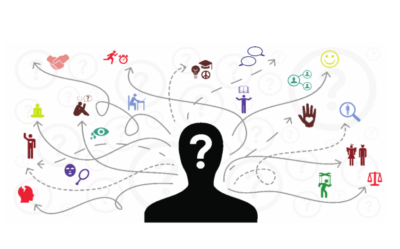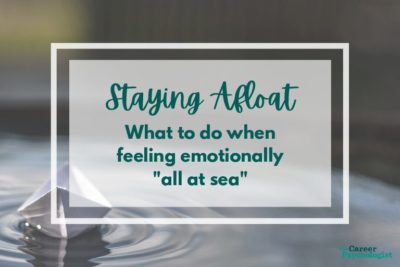Our privacy policy
Keeping your details safe.
This privacy policy sets out how we use and protect any information that you give us when you use this website.
We want to ensure that your privacy is protected. Should we ask you to provide certain information by which you can be identified when using this website, then you can be assured that it will only be used in accordance with this privacy statement.
We may change this policy from time to time by updating this page. You should check this page from time to time to ensure that you are happy with any changes.
Using your personal data legitimately
This privacy policy sets out how we use and protect any information that you give us when using this website and interacting with The Career Psychologist. It reflects new UK/EU data protection laws taking effect on 25 May 2018.
We obtain information about you when you email us or use our website. For example, when you contact us with an enquiry, or if you register to receive our blogs and news updates. If you undergo coaching with us, we also collect information during the coaching process, which we need in order to coach you.
Your personal data will only ever be used in accordance with this privacy statement. If you have any questions about it, please email info@thecareerpsychologist.com
We may change this policy from time to time by updating this page, so please check it intermittently to ensure you are happy with any changes.
Who are we?
We are a network of expert psychologists which does not operate for profit (we charge only to cover our running costs and so each psychologist can earn a living).
The Career Psychologist is itself not a company, but a network of independent career psychologists operating under a single brand. The Career Psychologist core team is Rob Archer and Nimita Shah, who collaborate with the other psychologists in the network. When you sign up for coaching with The Career Psychologist, Nimita will discuss your requirements with you and then – with your agreement – refer you to the career psychologist best placed to help you. Each member of the network commits to treating your personal data in accordance with this privacy policy and with UK and EU data protection laws.
What information is collected, why, how and when?
When you email us or use the ‘Contact Us’ form on our website to make an enquiry, we collect your name, email address, phone number if you provide it, and a description of your situation. To determine the best career psychologist to help you, we may then email or call you to seek further information about your situation.
When you undergo coaching with one of our expert career psychologists, the data gathered during your enquiry is passed to that psychologist – you agree to this as part of the coaching contract before the coaching starts. In order to coach you well, that psychologist will also gather further information about you during the coaching, such as notes they make during your sessions or exercises that you complete. Before you agree to start the coaching, your career psychologist will explain what data they gather, why, how they keep it secure, and what they will do with it after the coaching ends. If you are not happy with any of this, you can decide not to undergo the coaching.
If you have registered on our website for blog posts and other updates from us, or you opt in to these via other means we provide, we gather your name and email address which we use to email you the blog and other updates that you requested. You can unsubscribe from these at any time via the ‘unsubscribe’ links which we include at the bottom of each email.
We will hold your personal information securely in our systems for as long as is necessary for the relevant activity or as long as is set out in any relevant contract you hold with us. When you use our website or make an enquiry, our lawful basis for processing your data is legitimate interests so we can provide the service you would expect. When you use our coaching services, our contract with you is the lawful basis. When we send you blog posts, our lawful basis is your consent, which you can withdraw at any time as explained above.
As is normal when using the internet, when you use our website, we collect your IP address so that our webserver can show you the pages you wish to see. We also sometimes use Google Analytics to see which of our web pages are accessed and when. (See the section on ‘Cookies’ below for more details). But we do not ourselves store any of this data, nor can we personally identify you from it.
Who has access to your information?
We will not sell or rent your information to third parties, or share it with third parties for marketing purposes.
We may transfer your personal information to a third party if we are under a duty to do so to comply with any legal obligation or to enforce or apply our terms of use or to protect the rights, property or safety of our team or our clients. However, in this case we will take steps with the aim of ensuring continued protection of your privacy rights.
How you can access & update your information
If you change email address, or any of the other information we hold is inaccurate or out of date, please email info@thecareerpsychologist.com and we will seek rapidly to correct it.
You have the right to ask for a copy of the information that we hold about you, and in some cases for your personal data to be deleted. To do this, please contact both info@thecareerpsychologist.com and, if applicable, the psychologist who coached you (using the email address with which they corresponded with you).
Security procedures we follow
We take steps to treat your personal data securely.
However, we transmit information normally over the internet, and this can never be guaranteed to be 100% secure. As a result, while we strive to protect your personal information, we cannot guarantee the security of any information you transmit to us, and you do so at your own risk. Once we receive your information, we make our best effort to ensure its security on our systems.
Use of cookies
A cookie is a small file which asks permission to be placed on your computer’s hard drive. Once you agree, the file is added and the cookie helps analyse web traffic or lets you know when you visit a particular site. Cookies allow web applications to respond to you as an individual. The web application can tailor its operations to your needs, likes and dislikes by gathering and remembering information about your preferences.
We use traffic log cookies to identify which pages are being used. This helps us analyse data about webpage traffic and improve our website in order to tailor it to customer needs. We only use this information for statistical analysis purposes and then the data is removed from the system.
Overall, cookies help us provide you with a better website by enabling us to monitor which pages you find useful and which you do not. A cookie in no way gives us access to your computer or any information about you, other than the data you choose to share with us.
You can choose to accept or decline cookies. Most web browsers automatically accept cookies, but you can usually modify your browser setting to decline cookies if you prefer. This may prevent you from taking full advantage of the website.
Links to other websites
Our website may contain links to other websites of interest. This privacy policy applies only to our website‚ so we encourage you to read the privacy statements on the other websites you visit. We cannot be responsible for the privacy policies and practices of other sites even if you access them using links from our website.
In addition, if you linked to our website from a third party site, we cannot be responsible for the privacy policies and practices of the owners and operators of that third party site and recommend that you check the policy of that third party site.
Transferring your information outside the EU
Some of our expert psychologists are based outside the European Union – currently Rachel Collis in Brisbane, Australia, and Rob Handleman in New York, USA. This can be a great advantage to any clients who themselves are based in these countries. However, we are required to flag that these places may have different data protection laws to the EU and the UK. Like all members of The Career Psychologist network, those psychologists based outside the EU will abide by this privacy notice and if you consider undergoing coaching with them, they will make clear as part of the contract how they will use and protect your personal data. If you proceed with the contract you are agreeing to this transfer and use of your personal data.
Review of this policy
We keep this Policy under regular review. This Policy was last updated in May 2018.


 Day 1; 56 conscious thoughts about checking my phone!
Day 1; 56 conscious thoughts about checking my phone!
 This blog was written by Naomi de Barra – a Business Psychologist and valued member of The Career Psychologist Team.
This blog was written by Naomi de Barra – a Business Psychologist and valued member of The Career Psychologist Team.
 To a poor swimmer, doing “nothing” in such a situation would be counter-intuitive, in fact they just wouldn’t think of it. But to an accomplished swimmer, lying flat on the water comes naturally and easily. This is how one person describes their experience of staying afloat:
To a poor swimmer, doing “nothing” in such a situation would be counter-intuitive, in fact they just wouldn’t think of it. But to an accomplished swimmer, lying flat on the water comes naturally and easily. This is how one person describes their experience of staying afloat: Mental health problems can arise for many of us in the workplace. The above metaphor was developed in collaboration with two clients who gave consent for this to be published to help others. Both individuals are highly successful business executives; one of whom suffered from work-related anxiety and panic attacks and another who suffered from chronic depression and at times could become submerged in suicidal thoughts. If you’re struggling with your mental health in your career or working life, you may benefit from having a quick chat with a career psychologist. A good starting point may be to have a look at The Career Psychologist website (
Mental health problems can arise for many of us in the workplace. The above metaphor was developed in collaboration with two clients who gave consent for this to be published to help others. Both individuals are highly successful business executives; one of whom suffered from work-related anxiety and panic attacks and another who suffered from chronic depression and at times could become submerged in suicidal thoughts. If you’re struggling with your mental health in your career or working life, you may benefit from having a quick chat with a career psychologist. A good starting point may be to have a look at The Career Psychologist website (